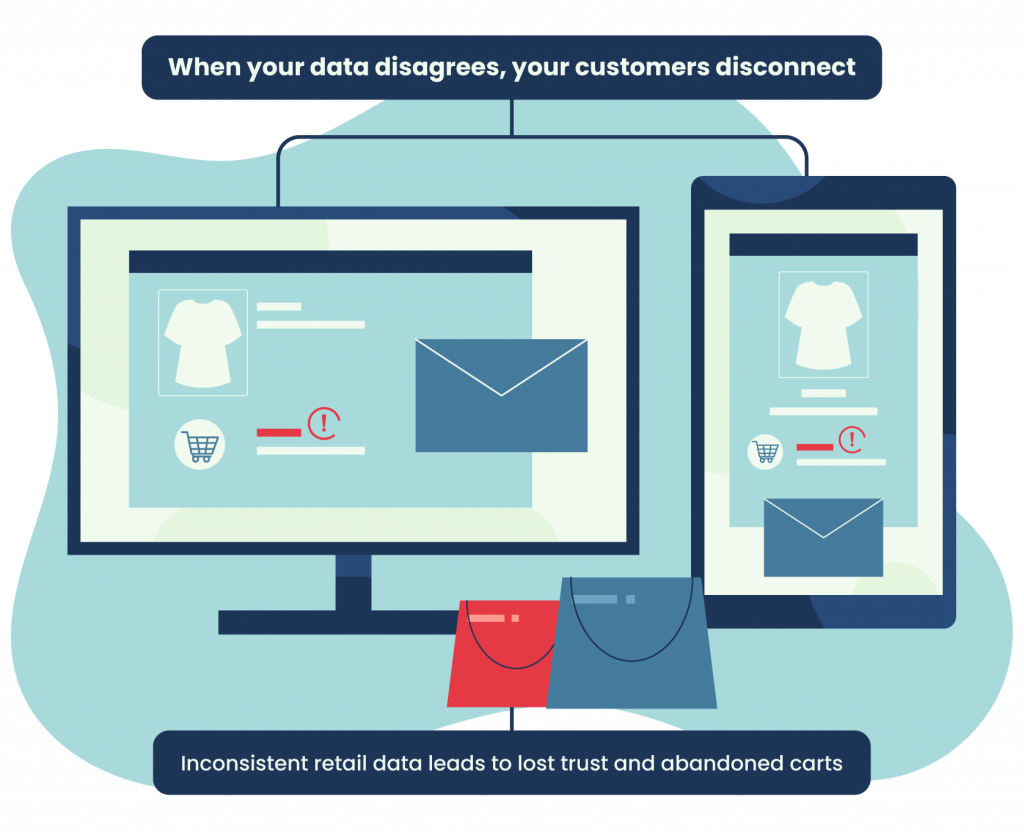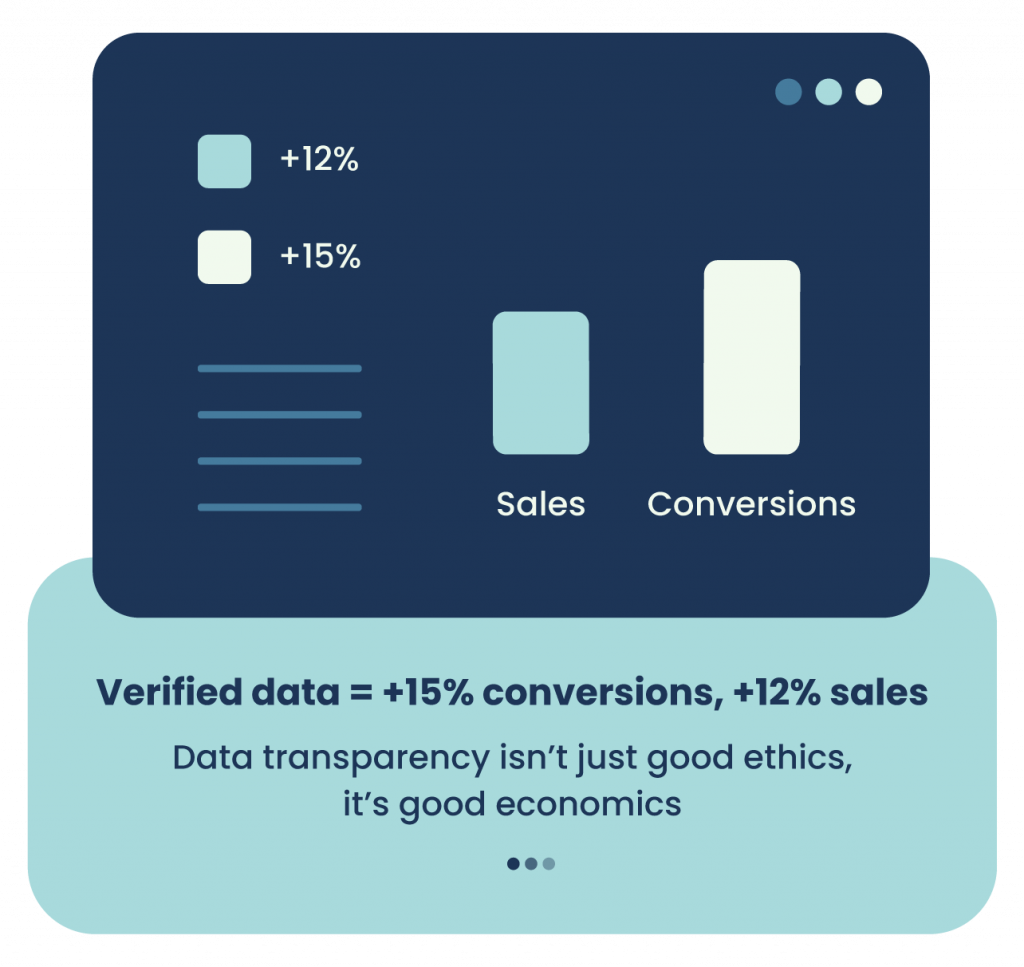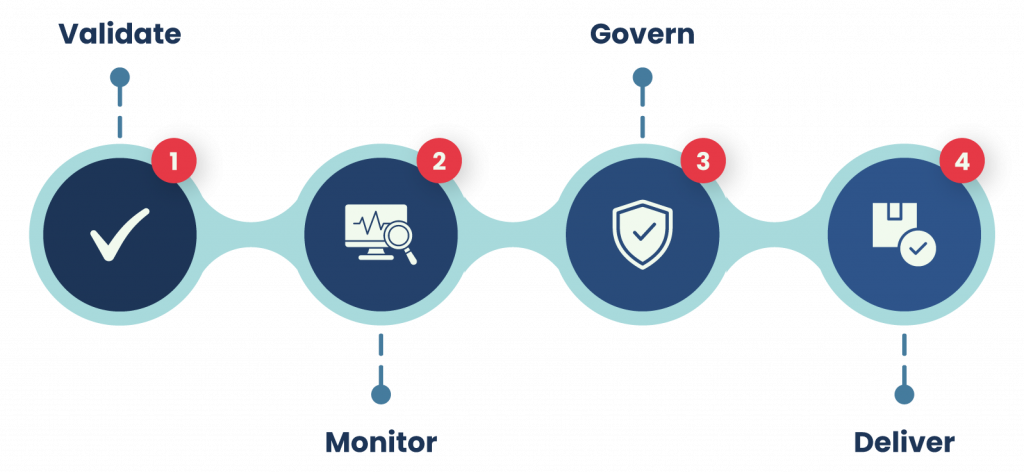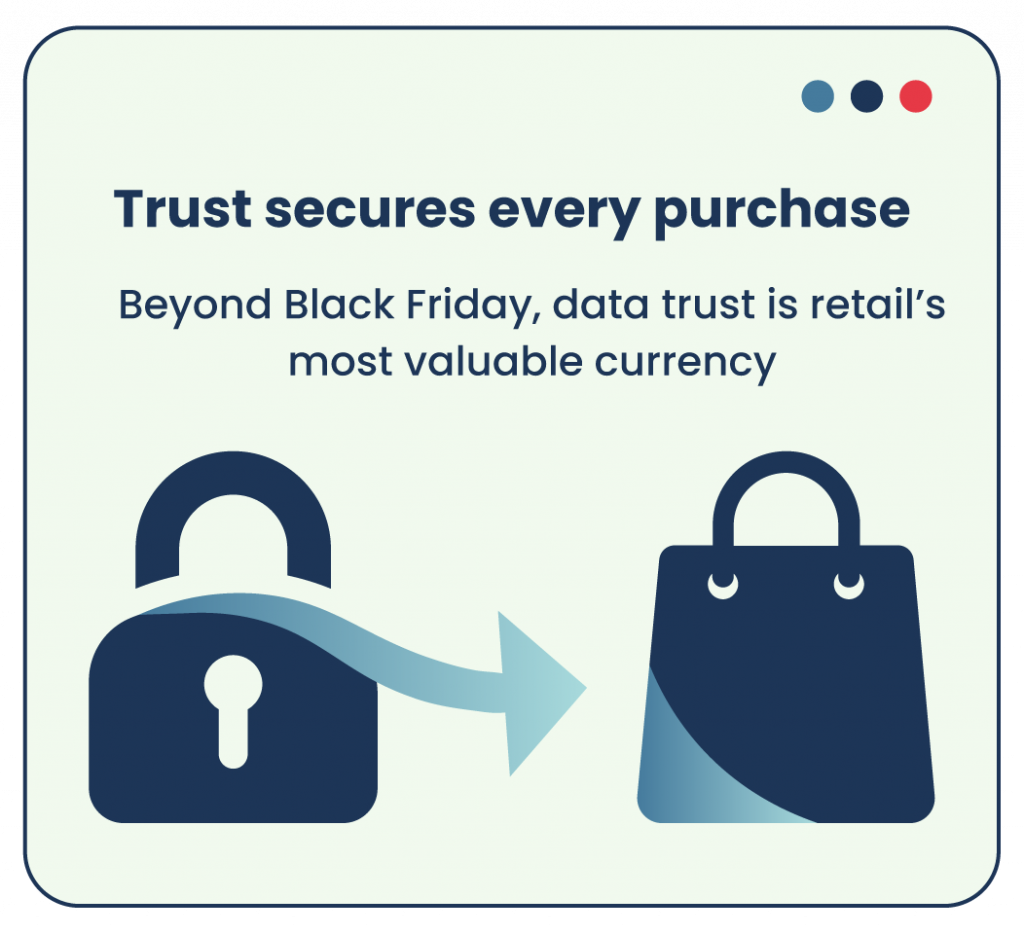Why Trust Is the Real Conversion Engine In Retail?
Black Friday is retail’s annual data stress test.
In a matter of hours, retailers absorb millions of clicks, scans, searches, wish-lists, price drops, coupon validations, returns, and customer support interactions across stores, apps, websites, marketplaces, and social commerce.
It’s chaos, but it’s also truth-revealing chaos. Because in these peak moments, every detail matters: the price shown, the inventory promised, the claim attached to a product, the delivery date estimated, the promo that should apply.
Every click, price, and label tells a story – but can your data be trusted?
On Black Friday, data trust becomes the silent force behind credibility and conversions. Retailers who get it right don’t just survive the surge; they win loyalty in the noisiest weekend of the year.
1. The Hidden Risk: When Retail Data Breaks Trust
Retailers rarely intend to mislead. But under pressure, trust breaks in subtle ways, usually through data that’s inconsistent, unverifiable, or stale.
Think about product claims such as:
- “Vegan”
- “Organic”
- “Nontoxic”
- “Sustainably sourced”
- “Hypoallergenic”
Consumers increasingly shop by values and health filters. But if those claims are not verified and consistently applied across systems, trust fractures fast.
What happens when data trust collapses?
- Omnichannel mismatches become visible instantly.
A product labeled “organic” on the app but not on the site makes the shopper suspect both channels. - Skepticism spreads faster than promotions.
One misleading attribute or badge can trigger social backlash and long-term brand doubt. Retail trust is reputational and networked, not private. - Fragmented experiences cause abandonment.
When availability, price, claims, or descriptions disagree between channels, customers stall, compare, and exit.
When your product data disagrees between the app and the website, your customer believes neither.
Retail isn’t just selling products anymore; it’s confidence in sales.

2. Building the Foundation: What Retail Data Trust Really Means
Retail data trust isn’t a vague ideal. It’s operational.
Retail data trust = verified, consistent, and transparent data that aligns across systems
(eCommerce, inventory, CRM, marketing, loyalty, labels, and supply chain).
That means:
- The same product truth everywhere
- The same price logic everywhere
- The same validated claims everywhere
The same availability reality everywhere
Why verification and governance are non-negotiable
Values-based and compliance-heavy categories now demand proof, not just marketing. Fast Company points out that the burden of proof is shifting to retailers because regulation is still catching up. Verified claims reduce risk and create a competitive advantage.
This is where data reliability frameworks come in:
- Verification ensures claims and attributes are real.
- Governance ensures they stay consistent.
- Reliability monitoring ensures nothing breaks under load.
Without this foundation, personalization, analytics, and AI are just guesswork.
3. The Black Friday Impact: Verified Data = Higher Conversions
Black Friday compresses decision-making. Shoppers are scanning faster, comparing faster, and trusting less by default.
In that environment, trust becomes a shortcut to purchase.
Verified data doesn’t just reduce risk – it multiplies opportunity
- Retail programs using verified proof points see conversion lifts of around ~15% because AI and shoppers both prioritize products with trusted attributes.
- AI personalization broadly drives 10–15% sales gains when powered by clean, aligned data.
- Fast Company also highlights that products with multiple verified claims grew almost 3× faster than products without them.
So when your data is verified, you don’t just avoid errors, you surface more often, rank better, and convert harder.
Consumer psychology tie-in:
During discount-heavy seasons, shoppers assume everyone is loud. Authenticity becomes the differentiator. Trustworthy data is how you prove authenticity at scale.

4. Retail Success Stories Enabled by Data Trust
Data trust isn’t theoretical. It’s already driving performance in leaders who treat data like a product.
Signet Jewelers: Trusted data powering modern retail
Signet’s transformation into a customer-first, omnichannel leader relied heavily on building reliable product and customer data foundations to support AI, personalization, and new digital experiences.
When your catalog is emotionally driven and high-stakes (like jewelry), trust isn’t optional. It’s the brand.
Best Buy: Precision instead of blanket discounting
Best Buy’s long battle against “showrooming” was won not through reactive price matching alone, but by using analytics to understand where price gaps mattered and how consumer perception shaped buying.
The lesson for Black Friday?
Reliable, granular data enables surgical promotions instead of wasteful discount floods.
Large retailers modernizing with consolidated data
Retail MDM and consolidation programs consistently show that removing duplication and enforcing a single source of truth improves speed, accuracy, and AI readiness, especially across pricing, inventory, and promotion pipelines.
Across grocery, hardware, and pure-play eCommerce, the pattern is the same:
Trustworthy data aligns pricing + availability + promotions → customer confidence rises → loyalty and sales follow.
5. From Chaos to Confidence: Practices for Retail Data Trust
Here’s a practical Black Friday checklist for any retailer preparing for high-volume moments:
1. Automate product data verification
Especially for values-based claims and regulated categories. Verified badges materially change shopping behavior and AI ranking.
2. Establish real-time monitoring on retail pipelines
Your promotions, inventory syncs, and pricing flows need reliability alerts before customers notice.
3. Govern sources to eliminate mismatches
If eCommerce, PIM, and store systems don’t share a common truth, customers will notice the gap.
4. Use cross-channel trust dashboards
One view for claims, prices, stock, and promo correctness across channels avoids surprise disconnects.
5. Test load scenarios ahead of major campaigns
Black Friday is not the time to discover silent failures in data jobs.
On Black Friday, it’s not your discount that defines you – it’s your data integrity.

6. Conclusion: Beyond the Sale – The New Retail Currency
Black Friday ends. Trust doesn’t.
Retailers who invest in data trust aren’t optimizing for a weekend; they’re building a foundation for every season after it.
Because when the discounts fade, what stays is:
- The confidence shoppers feel in your catalog
- The reliability they experience across channels
- The belief that your claims match reality
Don’t just survive peak season, stabilize every season. With Qualdo™ Retail, your data stays consistent across POS, ecommerce, marketplaces, and fulfillment.
Strengthen your retail signals with Qualdo™ Retail. In a world of flash sales, reliable data keeps the lights on when the discounts fade.




